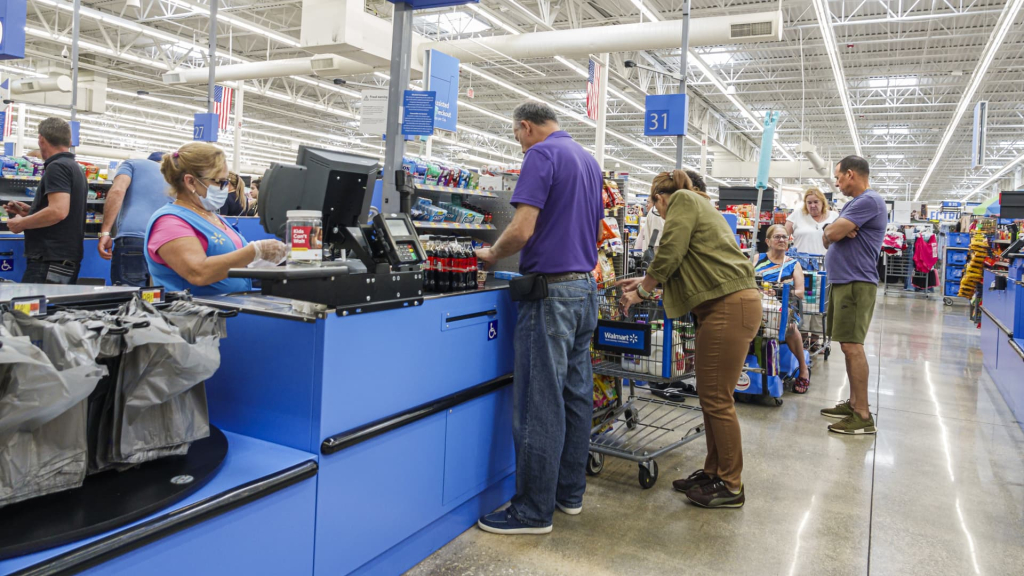Recent earnings reports reveal that Hispanic consumers are reducing their grocery spending across a range of products, from beverages to cooking essentials, according to industry executives.
Major corporations such as Coca-Cola, Constellation Brands, and Colgate-Palmolive have reported declines in North American sales stemming from Hispanic shoppers.
As noted by the U.S. Census Bureau, individuals identifying as Hispanic or Latino constitute approximately one-fifth of the U.S. population. This demographic has become the second-largest group in the country and exhibits rapid growth rates.
With the rise in their population comes an increase in purchasing power, greatly influencing corporate revenues. The Latino Donor Collaborative reported that the U.S. Latino economy reached $3.6 trillion in 2022, an increase from $3.2 trillion in the previous year. Moreover, Hispanic consumers are noted to spend more on consumer packaged goods compared to their non-Hispanic counterparts, as highlighted by market analysis from Circana.
However, concerns over the White House’s stringent immigration policies and broader economic uncertainty have prompted many Hispanic consumers to scale back their expenditures.
A drastic drop in consumer purchase intent was observed among Hispanic consumers in January, although the trend showed some improvement by February, according to a research report from Goldman Sachs based on HundredX data. This metric reflects the difference between the number of customers intending to increase purchases from a brand versus those planning to decrease their spending.
Experts suggest that anxieties regarding strict immigration policies are contributing to this spending decline.
Despite the Trump administration reportedly deporting fewer individuals than the current Biden administration over the same timeframe, Immigration and Customs Enforcement data indicates a 10% increase in detainee numbers compared to the Biden era.
Fewer opportunities to spend
Hispanic consumers played a crucial role in helping Constellation Brands’ Modelo Especial surpass Bud Light as the leading beer brand in the nation. Notably, over half of Modelo’s drinkers identify as Hispanic, according to CEO Bill Newlands.
However, the company provided a less optimistic projection for its fiscal 2026, citing a combination of tariffs and a reduction in spending among Hispanic consumers.
“Many individuals within the Hispanic community are currently experiencing anxiety,” Newlands remarked during the conference call in early April. “Over half of them express concern over immigration issues and their implications. Additionally, there is worry about potential job losses in sectors that predominantly employ Latinos.”
The Latino unemployment rate rose to a seasonally adjusted 5.2% in April, a slight uptick from 4.8% a year earlier and 5.1% in March, according to data from the Bureau of Labor Statistics.
“Social activities, typically associated with beer consumption, are currently in decline,” Newlands added.
Constellation, which also produces Corona beer, has consistently indicated that Hispanic Americans represent about 50% of its overall beer sales. Data from Numerator and investment bank Jefferies reveals that Hispanic and Latino consumers accounted for 32.5% of the company’s sales in 2023.
Similarly, Boston Beer, the producer of Sam Adams, has reported a related downturn in its quarterly assessments.
“Current macroeconomic challenges include consumer confidence and inflation fears, alongside Hispanic consumers pulling back from outings,” noted Boston Beer CEO Michael Spillane.
Hispanic consumers are also curtailing their non-alcoholic beverage purchases, according to Keurig Dr Pepper CEO Tim Cofer, who noted during the company’s conference call in late April that spending by Hispanic consumers has regressed over recent months.
“This trend is evident through fewer shopping trips and a decline in spending per trip,” Cofer elaborated.
Hispanic customers constitute a significant segment of Keurig Dr Pepper’s business, which offers popular brands among Hispanic consumers such as Squirt soda, Peñafiel mineral water, and Clamato, a beverage often paired with beer for micheladas. Despite the slowdown, Keurig Dr Pepper is maintaining its full-year forecast.
Coca-Cola has also refrained from revising its projections but aims to restore appeal among Hispanic consumers in the upcoming quarter.
For years, Coca-Cola has strategically targeted Latino demographics through various advertising initiatives and acquisitions, including the purchase of Mexico’s Topo Chico in 2017. However, executives recently cited reduced engagement from Hispanic shoppers as a factor impacting its North American sales, in part due to rumors of a boycott.
In February, allegations circulated on social media that Coca-Cola had reported undocumented workers to immigration authorities. Although the company denied these claims, CEO James Quincey stated last week that the “completely false” narratives negatively affected foot traffic, particularly in southern states.
Additionally, tensions related to immigration policies are having repercussions in Mexico, with Quincey commenting, “Some geopolitical tensions and the pullback of Hispanic consumers also impacted the Mexican market, especially in border regions that are closely linked to the U.S.”
Impacting beyond beverages
The decline in spending among Hispanic consumers extends beyond just beverages; other grocery sectors are feeling the crunch as well.
Associated British Foods has reported diminished sales for its Mazola cooking oils, America’s top-selling oil brand, largely attributed to reduced spending by Hispanic customers.
“It’s a challenging time for us because our primary customer base is Hispanic, who are feeling anxious and are cutting back on their spending. It feels quite recessionary in parts of the U.S. market,” remarked CEO George Weston during a recent conference call.
Colgate-Palmolive has also attributed lower foot traffic from Hispanic consumers as a contributor to its challenges, with the company’s chief investor relations officer, John Faucher, indicating a 2.3% reduction in North American volume for the first quarter.
However, Walmart, the largest grocery chain in the nation, reported that the immigration policy under the Trump administration has not had significant repercussions to date. “So far, it’s a non-event for us,” stated CEO Doug McMillon on the company’s earnings call in mid-February.


























